Goheal: From "control acquisition" to "speaking power struggle", who is quietly influencing
"Those who get the door can enter, and those who get the key can control." If a listed company is compared to a building, then control is the key to the top-level meeting room. And the board of directors is the most core and mysterious "cockpit" in this building. Many people think that as long as they buy the shares of the major shareholders, they will control a company. In fact, that is just sitting at the table. What really determines the fate of the company is who can control the right to speak and who can lead the decision-making rhythm of the board of directors.
In this era where "equity dispersion" has become the norm, more and more capital players have begun to understand a truth: buying a controlling stake does not mean that you can give orders. The real power struggle has just begun in the board of directors. As a result, a more secretive and subtle "board game" has quietly begun. And this is exactly the "hidden acquisition scenario" that Goheal has frequently encountered in practice in recent years.
American Goheal M&A Group
In the past few years, whether in the A-share or Hong Kong stock market, we have witnessed a trend: from simply "acquiring controlling rights" to a refined struggle for "actual control" and "corporate governance discourse power". Many investors have realized that if they cannot occupy a key seat on the board of directors, even if they have 30% or 40% of the shares on paper, they may be marginalized in key decisions, or even countered by the "anti-takeover" mechanism.
For example, do you think that if you buy 20% of the shares of the major shareholder and sit on the throne of the largest shareholder, the board of directors will naturally listen to you? Not necessarily. Because the original actual controller may have laid out a "structural firewall" early: voting rights delegation, cross-holding of related directors, voting mechanism under agreement arrangements... It may even be "divided into pieces" through the employee stock ownership platform, so that you will never enter the "first echelon of voting".
Goheal once witnessed a wonderful drama of "obvious shares and hidden rights" in a certain pharmaceutical company merger and acquisition project. A financial investor took 27% of the shares of a listed company by agreement transfer, and was confident that he would lead the strategic adjustment. However, the other party's founder had already "distributed" the remaining 30% of the shares to three senior executives through multiple shell structures, forming a "small alliance board of directors". As a result, the new major shareholder was repeatedly voted down at the board of directors, and key proposals could not even be raised.
Who do you think controls the rights? In fact, the "invisible players" sitting on the board of directors are the ones who can really give orders.
So the question is: Why did the power distribution that should have "followed the share ratio" evolve into such a complex "discourse tactics" in practice? The reason is simple. The capital world no longer believes in the linear logic of "holding shares means control", and the real battlefield has long shifted from "who holds the most shares" to "who can control the board structure".
From the multiple cases of Goheal's operation, the current control transaction is more like a structured negotiation: not only the share ratio, lock-up period, and gambling clauses must be discussed, but more importantly - the board seat allocation mechanism, the scope of voting rights delegation, the ownership of proposal rights, and even the boundaries of the executive appointment and removal procedures. All of this determines whether you can "press the button that determines life and death" at a critical node in the future.
The essence behind this is actually the "financialization of board power". In the past, the board of directors was more like a part of the internal governance of the enterprise, but today, more and more capital market participants regard it as a circulation tool of the "voice asset" itself. You read that right, the voice can also be designed, traded, and even "borrowed".
For example, voting rights delegation is the most typical "rights backdoor". We have seen in many listed company mergers and acquisitions that the investor did not obtain a controlling position, but achieved absolute control of the board of directors by signing a voting rights agreement with the original senior management team. Outsiders only see that the equity change has not occurred, but the decision-making level has quietly "changed blood".
This has also spawned an emerging role: board structure consultant-and Goheal is a deep participant in this sub-segment. In Goheal's view, the control of the board of directors is not completed in one go, but a process of dynamic game, gradual accumulation, and fine layout. We prefer to use "dripping water wears away the stone" to describe this work: you have to talk piece by piece, fight for one vote by one vote, and lay out the structure step by step. Even before the merger and acquisition, we will develop a "three-year board evolution map" for our clients, planning in advance the key time points, the path of seat share changes, possible replacement mechanisms and defensive strategies.
There is another phenomenon that deserves attention - the end of the "neutralization" of independent directors. Don't be naive to think that independent directors are always "neutral". In the battle for control, they are often the final "vote that decides the outcome". We saw in a new energy company's control event that two shareholder camps with similar shareholding ratios on the surface finally completely reversed the ownership of the board's control because of an independent director's "defection".
This also means that operations such as "winning over independent directors", "pre-burying nominees" and "locking in joint proposals at shareholders' meetings in advance" have become the "standard actions" of large-scale mergers and acquisitions.
Goheal Group
Of course, not all control battles end in "daggers drawn". More often, it presents a "silent rearrangement of seats" - the person you thought was at the helm may have quietly stepped down; the consortium you didn't pay attention to has already formed an alliance behind you. The script of the capital world never follows tradition.
In such a new era that emphasizes the integration of structural power and discourse power, Goheal advises all entrepreneurs and investors involved in acquisitions: "Equity structure" is just an entry ticket, and "board control" is the real pass. Whoever can grasp the degree and accurately layout in the complex power structure can truly dominate the future of the company.
Having written here, have you also begun to re-examine your "control logic"? In the company where you hold shares, do you really have the "right to speak"? Or, has the equity acquisition you are planning already reserved a "controllable slot" for future board seats?
We want to hear your story. Have you ever experienced the feeling of powerlessness of holding equity but being unable to dominate decision-making? How do you view the future evolution of the board's power structure? Welcome to leave a message in the comment area for discussion. Goheal will also continue to share more practical cases and analyze this capital game about "invisible power" with you in depth.
[About Goheal] Goheal is a leading investment holding company focusing on global mergers and acquisitions. It has deep roots in the three core business areas of acquisition of controlling rights of listed companies, mergers and acquisitions of listed companies, and capital operations of listed companies. With its profound professional strength and rich experience, it provides companies with full life cycle services from mergers and acquisitions to restructuring and capital operations, aiming to maximize corporate value and achieve long-term benefit growth.


